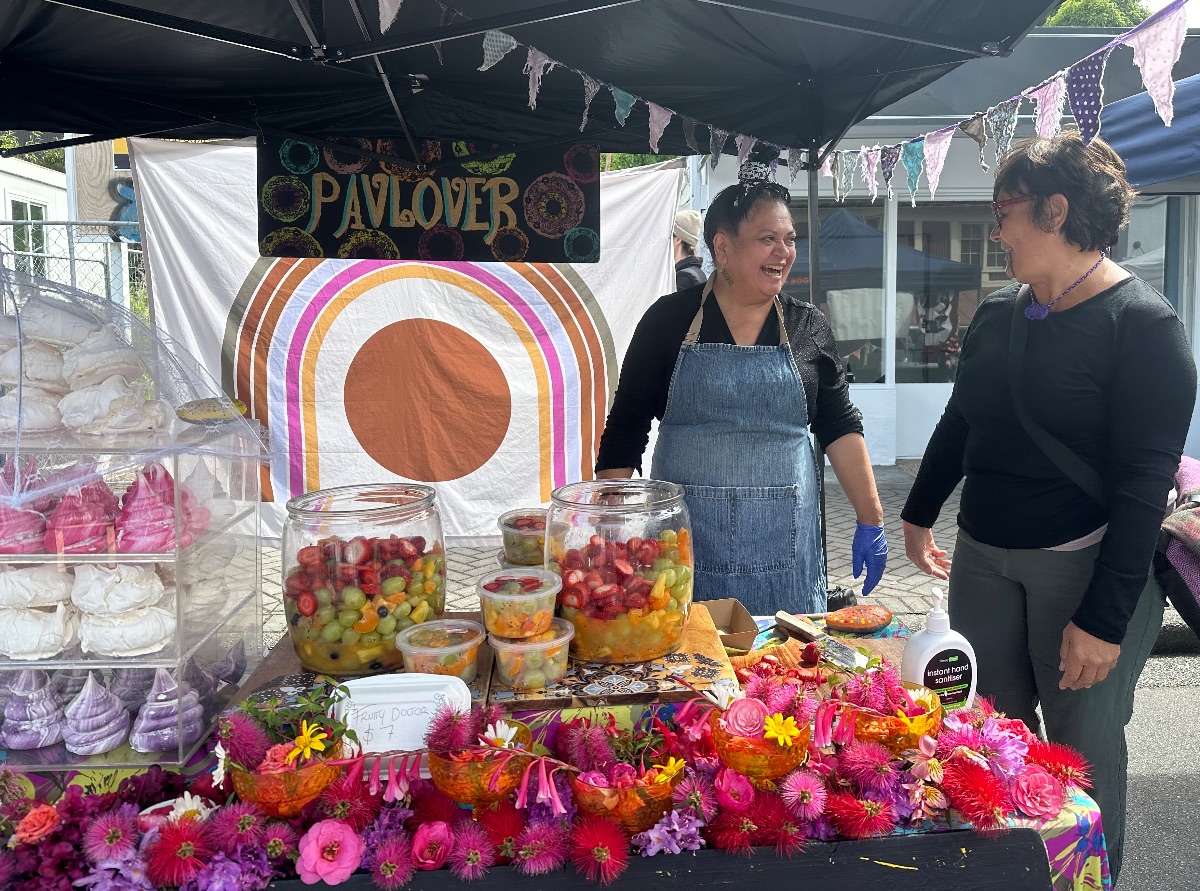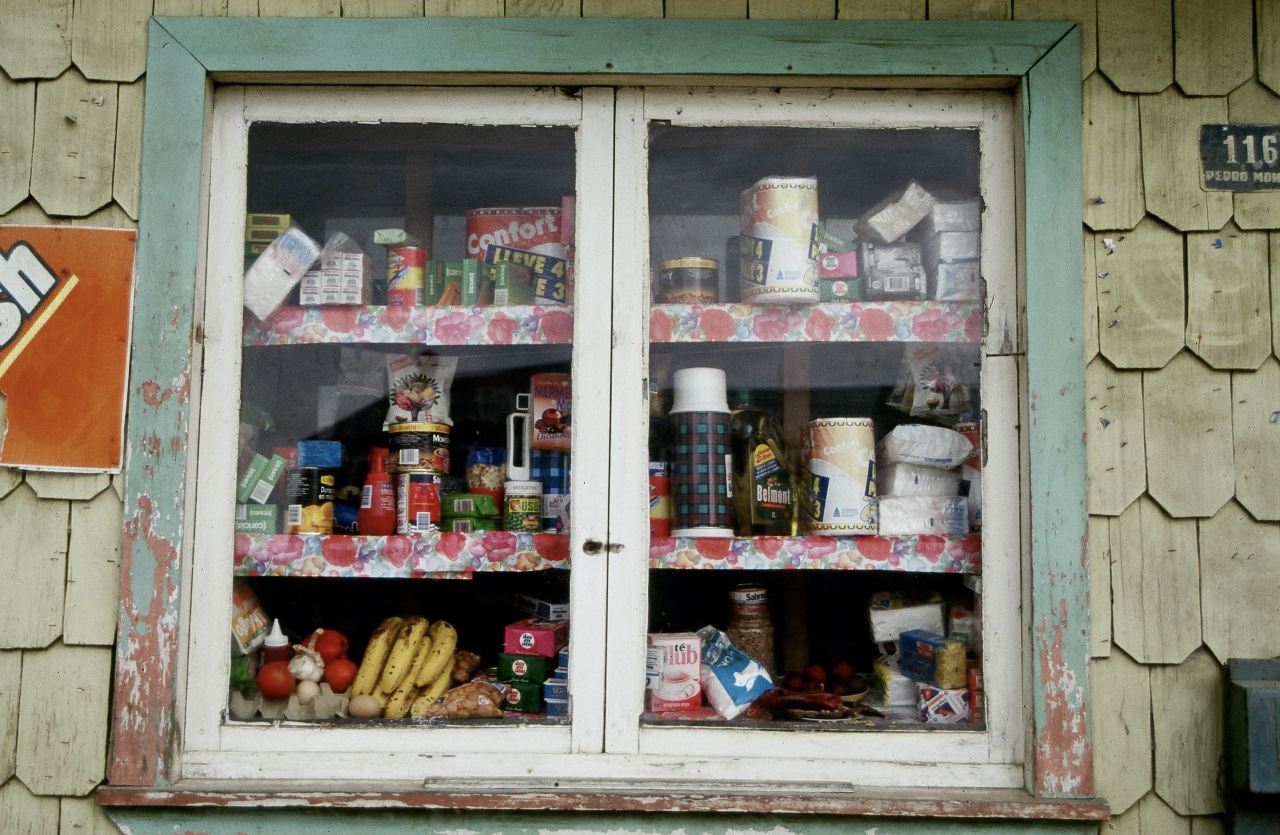The antithesis of Black Friday – a colourful display at Lyttelton Saturday market where the focus is more on community than consumption
Do you know what ‘Black Friday’ refers to, other than a shopping spree driven by sale pricing? Black Friday is the day after Thanksgiving in the United States, when consumer spending starts to pick up towards the Christmas holiday season. However, it was originally named because it was a day when many workers called in sick to have a four-day weekend over the Thanksgiving holiday. The first recorded instance of the term ‘Black Friday’ was in 1951. It didn’t catch on in regard to the day off but, around the same time, the crowds and traffic congestion accompanying the start of the Christmas shopping season were described as ‘Black Friday’ and ‘Black Saturday’ by the police in Philadelphia and Rochester. This reference didn’t catch on very quickly either. In 1975 ‘Black Friday’ was used this way in the New York Times butmany retailers were still not aware of it in 1985.
However, ‘Black Friday’ picked up steam in the 1990s and became even more of an event with the increases in online shopping over the last twenty years. Moreover, the US has now managed to export Black Friday around the globe, along with a whole lot of other customs that we probably never needed – having a day to celebrate consumer excesses doesn’t seem like a positive.
Anti-grinches point out the good side of Black Friday is people get to buy things more cheaply as a result of the sales – people can wait for the sales opportunity they know will be coming. However, in New Zealand last year as many as 15% of Black Friday ‘sale prices’ were deemed fake sales by PriceSpy and a Consumer NZ investigation into Black Friday sales at four big-box retailers has found 77% of the products it tracked could have been purchased for the same price or less in the weeks prior to Black Friday.
The use of ‘Black ‘for a day that is about a lot of shopping and is great for retailers seems a little odd. Most ‘Black’ days are not very positive, although many are about money:
- October 19, 1987 is known as ‘Black Monday’ because it’s the day of a severe global stock market crash which was largely unexpected
- October 29, 1929 is known as ‘Black Tuesday’, the day of the Wall Street stock market crash.
- September 16, 1992 is known as ‘Black Wednesday’ – the day of a financial crisis for the pound sterling which majorly damaged public perception of the Conservative Party of the time.
- October 24, 1929 is known as ‘Black Thursday’ – the Wall Street stock market opened 11% down and panicked selling ensued which led up to Black Tuesday.
Non-money related black days include:
- In Samoa, Black Saturday is December 28, 1929 – the day police opened fire on a parade welcoming two members of the Mau movement (a revolutionary protest for Samoa’s independence from colonial rule in the twentieth century) home who had been exiled from New Zealand. Eight people were killed.
- In Pakistan, Kashmir Black Day is observed on 27 October, commemorating the day in 1947 India forcibly took control of the State of Jammu and Kashmir, without any legal justification.
- In Australia, Black Saturday was February 7, 2009 – a day when around four hundred bushfires were active in south-eastern Australia. 173 people died.
The standout positive ‘Black Day’ is In South Korea, on April 14th each year. It is exactly two months after Valentine’s Day. Black Day recognises singles who don’t get given chocolate either on Valentine’s Day (when men give women gifts) or on White Day (March 14 when women give men gifts). When we were cycling in South Korea it appeared romance is culturally very prominent – there were love hearts everywhere for people to take pictures under, or in. Not to mention the infamous love motels.

South Korean love motel – a cheap and comfortable stop for cycle tourists
The web throws up no ‘Black Sundays’. Perhaps because it is anti-religious to have a Black Sunday? ‘Black Sunday’ was the title of a 1977 action thriller film in which a blimp pilot (turned psychotic by his experiences in the Vietnam War) teamed up with a Palestinian terrorist with a plan to crash the blimp into the crowded stands at the Superbowl. There’s also a 1960 gothic horror of the same name about a vampiric witch and her lover. It wasn’t a great box office success.
It has been suggested that New Zealand now has a Black Friday Government – whether this is a good type of Black or bad type of Black likely depends on your political persuasion. Let’s at least hope the Black Friday coalition can smoothly last the test of a three year term.
I’ll also leave you to come to your own conclusions about whether ‘Black’ is the most appropriate colour for a day of shopping, or whether it should instead be considered a ‘Red Letter’ day – there’s a whole other set of references I could research another time!

Discover more from Jane Shearer
Subscribe to get the latest posts sent to your email.




